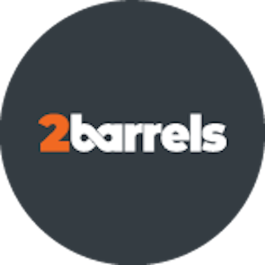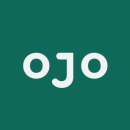In the tech industry, where women often confront unique challenges, community-building has become instrumental in empowering and supporting professional journeys.
These networks transcend simple social gatherings, evolving into hubs for growth advocacy and progress.
The gap between women’s academic accomplishments in tech fields and their representation in the industry, particularly in leadership positions, highlights the continued struggle for gender equality.
Here, communities emerge as essential platforms, bridging this divide. They furnish a collaborative space where women can forge connections, exchange experiences and advocate for workplace changes that prioritize diversity and inclusivity.
Within these communal spaces, mentorship takes on a critical role. Women receive not just technical guidance but also strategic advice on career progression and maneuvering through complex workplace environments from seasoned professionals.
Likewise, these communities have become forums for advocacy, where women actively engage in discussions around equitable policies. Their efforts focus on creating more accommodating and equitable workplaces, advocating for flexible working arrangements and fair opportunities for career advancement.
The influence of these community-led initiatives reaches far beyond individual career trajectories. They are instrumental in forging a path toward a more inclusive and equitable tech industry.
Through these collaborative networks, women are making significant strides in transforming the tech landscape into a more balanced and representative field. Women from three Austin tech companies delved into the importance of community, mentorship and collective success.
Corporate Tools is a multi-faceted tech firm with specialized teams in information technology, software development, marketing and operations.
What source of community have you created or sought out as a woman in tech?
As a woman in tech, I feel that creating a supportive and positive environment is key to forming meaningful relationships in the workplace. Throughout my professional career, I have worked to foster a collaborative and welcoming space where everyone feels listened to and valuable, regardless of gender identity. Currently, I am the only female tech lead in my department, and I coincidentally lead the team with the most female developers. I consider this to be a unique opportunity that will allow for more leadership roles for other under-represented groups within the development workspace.
As developers, we constantly learn new things and challenge ourselves with new concepts in our codebase. This can be beautifully represented within our community as well, as lifting up the voices of others within the workplace can allow us to expand our own knowledge even further and perhaps even challenge our previous understanding.
How have you benefited from mentorship and networking opportunities?
When I began searching for my first job in tech, I was dealing with a severe case of imposter syndrome and felt very much like an outsider. It’s no secret that women are a minority in the tech world — along with many other STEM fields, and I was coming in with minimal experience.
Though the thought of networking was initially rather intimidating, I was able to connect locally with a group of women working in the tech industry. They offered a great deal of guidance and general support and, overall, simply made me feel more at ease. Seeing other women confidently succeeding in their roles and knowing they had worked to pave the path for others just starting out like myself was incredibly encouraging. I hope to continue to build and foster relationships like these as I grow in my career.
What are the benefits of fostering a community of women in tech, and how does it contribute to individual and collective success?
There is so much power in seeing yourself represented positively in the workplace, especially if you can see yourself reflected even a tiny bit in the body of leadership. Starting a new role can be intimidating for many, regardless of how you identify. Knowing that a community is already in place to help welcome and support you throughout your professional career is incredibly empowering.
Individuals may feel more compelled to take on larger challenges and become more involved in various projects if they have a solid foundation supporting them. Maintaining a space where everyone feels comfortable expressing their ideas and working with others to grow both personally and collaboratively can only push the collective toward a more impactful net benefit.
WP Engine is a WordPress technology company that provides developer-centric WordPress products and services, powering over 1.5 million customers across 150 countries.
What source of community have you created or sought out as a woman in tech?
When I joined WP Engine, I was impressed by the diverse range of ERGs offered. I joined the one specifically dedicated to empowering women — Roar — and they connected me to an incredible group of women in the company, most of whom I might not have met otherwise.
Thanks to Roar, I have had the chance to be a part of inspiring events, connect with experts, and engage in thought-provoking discussions. This community has not only encouraged me to excel in my career but also empowered me to be a vocal advocate for gender diversity and equality in the tech world. As co-chair of our Austin hub and now in my new role as global co-chair, my goal is to help foster the growth of this group, creating a vibrant and secure space for women to collaborate, empower each other, and embody our company’s core value of being “Committed to Give Back” to our community.
How have you benefited from mentorship and networking opportunities?
One thing I love about WP Engine is its abundance of women in leadership roles. While I’ve connected with many women throughout the company, the relationships that have made the biggest impact on me are the ones I’ve built within my own team.
Working with the numerous talented women of the web experience team has been a privilege, and they’ve played a huge role in our collective success. Two of our team leaders, Senior Director of Digital Marketing Angela Hawkins and Director of Digital Marketing Whitney Berber, might not even know it, but they’ve had a significant influence on me and my career. Whether it’s energizing and mobilizing teams, championing our users or listening and making the most of everyone’s strengths, they’ve consistently led by example. Under their guidance, I feel both supported and valued, and I’m grateful for the invaluable lessons they’ve shared.
What are the benefits of fostering a community of women in tech, and how does it contribute to individual and collective success?
Encouraging more women to join the tech field and ensuring they have the support they need brings a richer mix of ideas and approaches to the industry. As groups like Roar grow and thrive, it gives women a chance to connect with others who understand the challenges they’re dealing with. This support isn’t just a confidence booster; it’s a key ingredient for personal growth, paving the way for individual success. These communities also act as hubs for sourcing advice and building useful connections.
On a bigger scale, having more women in tech communities shakes up the status quo, making the workforce more inclusive and diverse. When you bring different people together, it sparks fresh ideas and ways of doing things, leveling up the whole industry.
OJO offers personalized tools and expert guidance to make buying, selling and owning homes more accessible and manageable.
What source of community have you created or sought out as a woman in tech?
I have both sought out and created a source of community during my time as the lead of Women@OJO, our company’s ERG for women-identifying employees. Our mission is to empower female-identifying employees and allies by investing in their personal and professional growth, providing stewardship and support to help them excel with confidence while promoting a strong sense of community as well as equity and inclusive behaviors across the company.
Some of our past initiatives include a self-defense seminar led by one of our ERG members, Speedy Power Talks, focused on sharpening public speaking skills, and a workshop on mindset and limiting beliefs. At the start of the year, we opened a survey and asked our ERG members what skills they wanted to grow. Our programming over the course of the last six months has been a direct reflection of what the group values most and wants to get out of their involvement in the group.
How have you benefited from mentorship and networking opportunities?
Mentorship has allowed me to make very meaningful, powerful and lasting connections by simply raising my hand in situations where I often felt vulnerable and overwhelmed by imposter syndrome. Mentorship, to me, is multi-faceted and doesn’t have to be a traditional relationship with someone in a more senior role than me. Mentorship is also about connecting with and learning from employees in a different department, in a different role than my own, who I can learn something entirely new from.
My growing relationship with my manager is one of the most important relationships in my professional life. We’ve established a bimonthly meeting cadence strictly around my career growth and development. When I go into these meetings, I share a retrospective of my biggest projects and operational and conceptual goals, and then I wrap up by asking what I can do 10 percent better, which is one of my favorite things to ask. I heard a former manager ask this question, and it’s stuck with me ever since. It opens the conversation to talk about specific positive impacts and areas of opportunity. For me, this has helped strengthen relationships that I consider to be strong mentorship connections.
What are the benefits of fostering a community of women in tech, and how does it contribute to individual and collective success?
When I became the lead of Women@OJO, it was incredibly important to me that our ERG would not be only my voice but rather a reflection of every member who makes up the group. We have an open and ongoing anonymous feedback forum where our members have space to share what they want to see more of, what they enjoy, what they don’t enjoy and how we can be more inclusive and best represent our members. I also intentionally create the group’s programming based on their feedback and professional goals.
In a virtual world, it can be easy to get meeting fatigue, so much of our ERG programming is events and workshops specifically focused on developing skills and creating professional connections to people we otherwise would not interact with within the organization. Fostering a community within our organization creates space for mentor-and-advocate relationships to develop. As the leader of this resource group, my biggest goal is that there are valuable areas of opportunity for women to work toward individual and collective success through the programming we provide.











